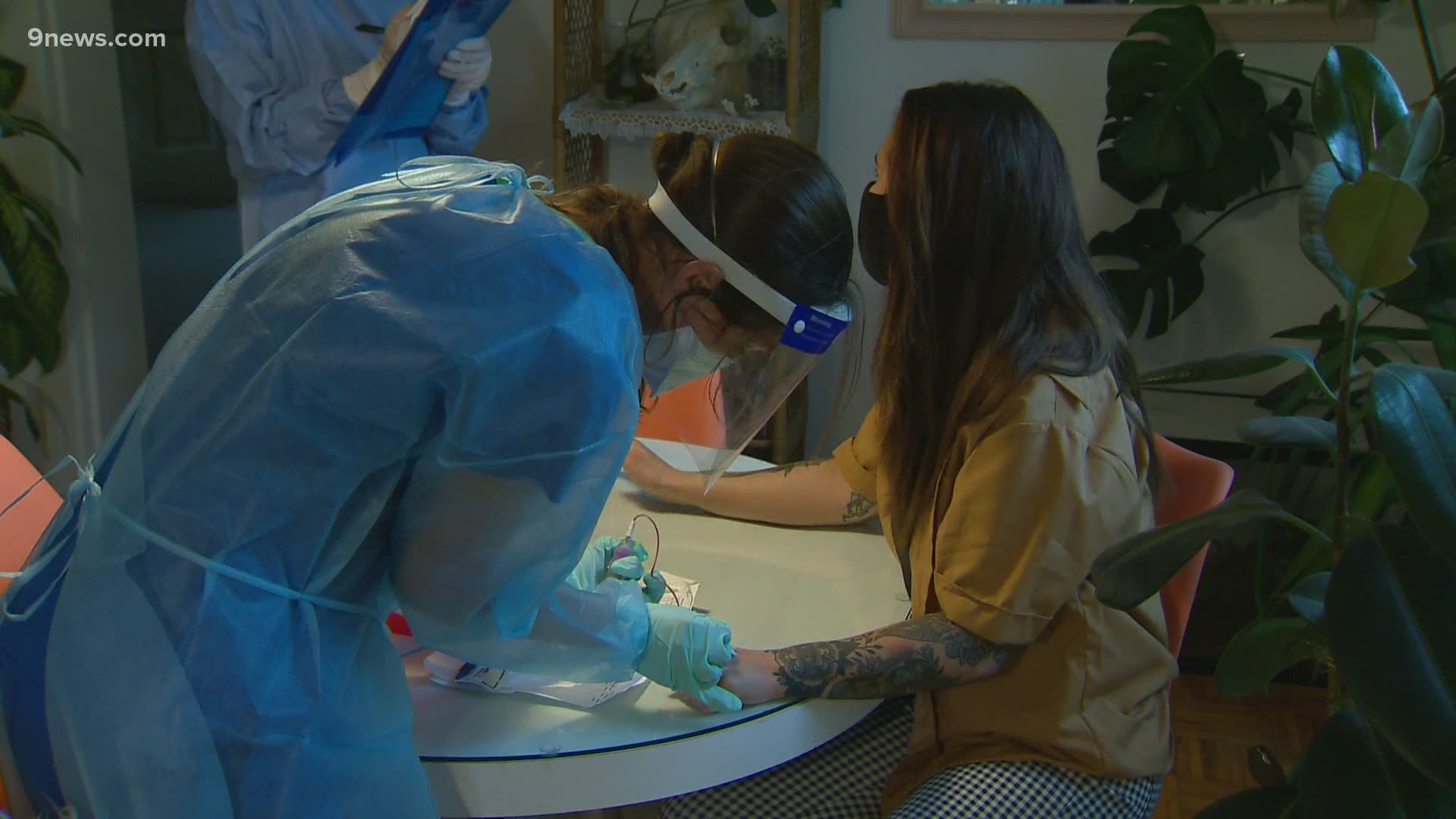DENVER — In an effort to better understand how many people in Denver may have already been infected with COVID-19, health officials are conducting a survey of randomly selected homes for antibody testing.
The Centers for Disease Control and Prevention (CDC) has partnered with the Colorado Department of Public Health & Environment (CDPHE) and Denver Public Health (DPH) to conduct the testing.
Public health officials from the CDC will randomly select homes in different areas of the city, and household members who choose to participate will be asked to answer survey questions and provide a blood sample.
That sample will then be tested for antibodies for SARS-CoV-2, the virus that causes COVID-19, the CDPHE said.
"So I wasn’t sure if it was real or if it was a scam," said Madeline Shaffner who received a letter about the survey. "Like if people were trying to sell antibody tests or something like that."
Once Shaffner called Denver Public Health to verify it was real, she said she called the number listed on her letter to let them know when she would be home so the CDC could take her blood.
On Tuesday afternoon, three public health workers came to her home, put on full PPE, asked her health questions and took her blood.
"It’s no big deal," said Schaffner after giving her blood. "It’s totally fine and the test isn’t bad, and the blood test is pretty painless.
The process took less than an hour.
Antibodies are produced when someone has previously been infected with COVID-19. Testing started on July 22 and will last through Aug. 9. Only homes approached by the CDC teams are eligible to participate and participation is voluntary.
“We’re excited to participate in this work to better understand community spread of COVID-19 in Denver, as well as to inform community intervention strategies not only in our local response but also with CDC at a national level,” said Tori Burket, communicable disease and disaster epidemiologist at DPH. “We hope that all Denver residents who are asked will participate in the antibody testing project to help us all in our fight against the virus.”
Teams will be identifiable by their CDC vests and CDC badges, and will never ask for social security numbers, financial information or citizenship status. They will also have an official letter from CDC, DPH and CDPHE.
CDPHE said antibody tests cannot determine if a person has an active COVID-19 infection at the time the sample is taken. Antibodies for COVID-19 typically take one to three weeks to develop.
According to CDPHE, Denver was selected by CDC for the survey because of its high COVID-19 incidence rate, and because Denver County also participates in CDPHE’s Emerging Infections Program for enhanced hospital surveillance and a blood donor testing program
”This project will help us learn more about the proportion of people who have evidence of a past or recent SARS-CoV-2 infection, even if they never experienced symptoms,” said State Epidemiologist Dr. Rachel Herlihy. “This important information will lead to a better understanding of the illness caused by SARS-CoV-2 and help guide future public health actions.”
The results of the study could help provide information needed to help public health officials understand COVID-19 and inform future strategies to prevent further spread of the virus, CDPHE said.
SUGGESTED VIDEOS: COVID-19 Coronavirus

